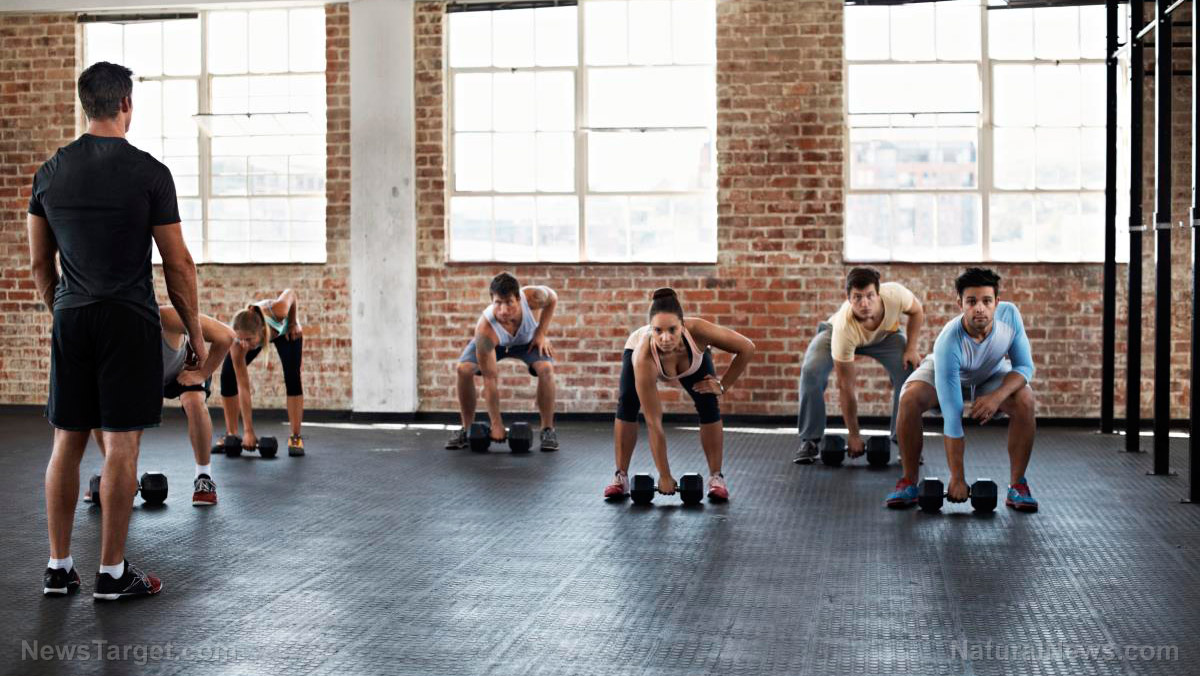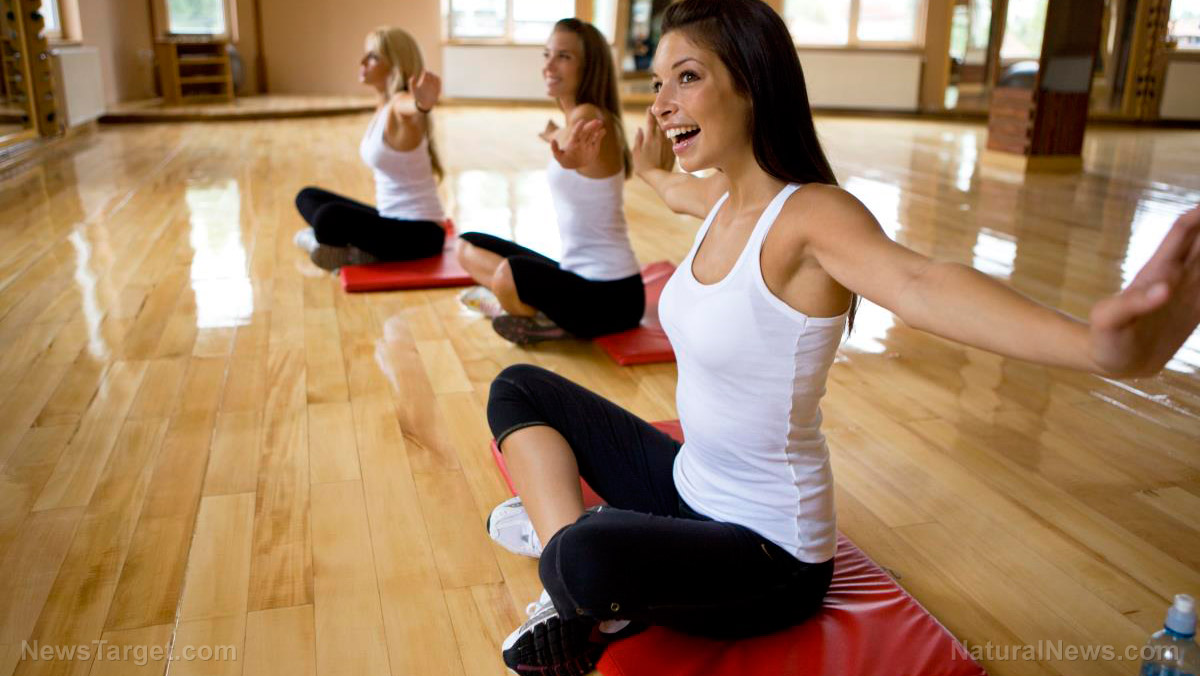Running on empty has its benefits: Fitness experts say do NOT eat before hitting the gym, contradicting a common exercise myth
01/22/2018 / By Frances Bloomfield

Is it really better for you to hit the gym on an empty stomach? It’s an odd yet intriguing idea that’s been gaining some traction in recent years. Many expert fitness experts have since and continued to come forward and speak about how this practice may hold the key to losing weight.
Less food, more fat
The human body is only able to do so much at a time. Eating a meal will prompt your body to concentrate on digestion instead of on other activities such as, say, exercise. “I don’t recommend eating a big meal or even a moderate meal right before exercise because the body will have to focus on digestion,” said Dianne Williams, a personal trainer who specializes in plus-size women.
Williams cited one study from 2017 wherein two groups of overweight were either given a 600-calorie meal before exercising or made to walk right away. The researchers observed changes in the fat-burning processes of both groups, specifically in the group that was fed prior to exercise. They discovered that tissue was indeed still busy still busy with food, so much so that the benefits gained from exercise were less pronounced than that of the group who walked on empty.
“Internal fat stores are broken down, to a greater degree, to sustain exercise following fasting. Following breakfast, energy will come from the food that has just been consumed,” explained study author Dylan Thompson.
As such, Williams suggested fasting at least 90 minutes before heading off to the gym. (Related: Breakfast as the most important meal is just a slogan? Experts agree fasting longer and eating less may be a better choice.)
So if eating lessens the benefits of physical activity, does that mean avoiding it increases them? According to Rui Li, personal trainer and the owner of New York Personal Training, that is indeed the case. In fact, craving food in preparation for exercise could be the sign of a sugar-adapted body instead of one adapted for fat. Li explained that people who are fat-adapted are able to convert fat into energy without getting hunger pangs, while the opposite held true for those who subsisted mostly on high-sugar foods. Fortunately, this can be remedied with some serious dietary changes.
The right kind of food
By cutting back on sugar and upping your intake of healthy fats (such as avocado and olive oil), you can reprogram your body into burning fat instead of glucose. In fact, Li stated that a healthy diet was what really mattered. “Eating right before (exercise) shouldn’t be necessary if you have a well-structured and well-balanced diet,” she said, then added: “Cooked vegetables offer a big chunk of high-quality protein and dark leafy greens have lot of fiber.”
Nutritionist Nikki Ostrower has agreed with that statement, stating that sugar-rich and carbohydrate-heavy foods should be avoided as much as possible. Moreover, eating after workouts is actually better since it helps the body in replenishing lost energy stores and mending muscle tears.
But what if you’re about to do some strenuous, high-intensity exercises and want to tackle them with a little something in your stomach? What should you eat then? Some excellent options include:
- Greek yogurt — Compared to regular yogurt, Greek yogurt has less sugar but more protein, making it a good choice for pre- and post-workout snacking. This is because protein is both a longer-lasting source of energy than carbohydrates,as well as an important contributor to post-workout muscle repair.
- Almond butter — Similar to Greek yogurt, almond butter is a good source of protein. This is in addition to its considerable abundance of healthy fats, minerals, vitamins, and antioxidants, all of which you need to stay healthy.
- Apples — Although apples have a considerable amount of carbohydrates, they’re rich in fiber too, which means you’re less likely to feel hungry while working out.
Go to Slender.news to find out what other foods you should or shouldn’t eat to maintain a healthy weight.
Sources include:
Tagged Under: exercise, fasting, fitness, food, metabolism, weight loss, working out




















